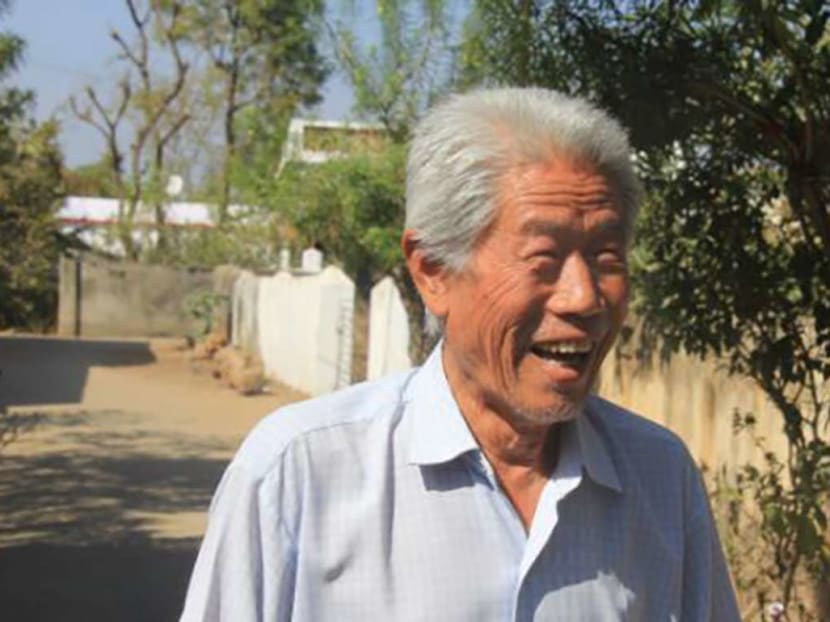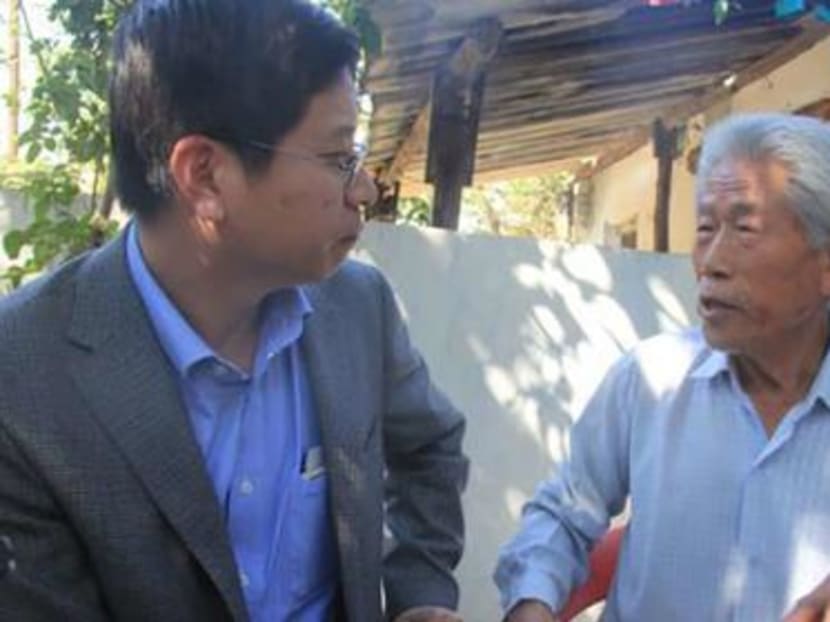PLA veteran stranded in India for five decades longs to return home
HONG KONG — A Chinese soldier who accidentally crossed the border into India where he was stranded for more than half a century has finally found his way home to China.

Wang told the Chinese embassy in New Delhi that he is desperate to return to China. Photo: Handout/South China Morning Post
HONG KONG — A Chinese soldier who accidentally crossed the border into India where he was stranded for more than half a century has finally found his way home to China.
Mr Wang Qi, originally from Shaanxi province, was due to fly to China with his son on Friday (Feb 10), a day after they were granted Indian passports by India’s Ministry of External Affairs, state broadcaster CCTV reported.
Mr Wang, 78, grabbed media headlines around the world last week after the BBC reported on Jan 31 that the People’s Liberation Army surveyor, who was unable to leave India since the brief border war China in 1963, longed to see his family in China.
During the BBC programme, Mr Wang, also known by his Indian name Raj Bahadur, spoke to his elder brother for the first time in more than 50 years through a mobile phone video call. The event drew much media attention in China during the Lunar New Year, the traditional holiday for family reunion.
A PLA surveyor stationed near Sino-Indian frontier, Wang went on leave for the New Year’s Day holiday in 1963, weeks after the Sino-Indian border conflict broke out.
However, Mr Wang lost his way after leaving camp, and spent two days alone in forests until he saw a car carrying members of the Indian Red Cross.
Instead of being sent back to China as he expected, Mr Wang was sent to an Indian military camp where he was arrested as a prisoner of war for “illegally entering Indian territory and threatening Indian state security”, according to a government document he showed to China’s Global Times tabloid.
He was sent to prison in New Delhi, where he said he was treated as a spy and suffered various torture before being sent to another prison in Punjab on the border with Pakistan.
Mr Wang spent the next few years in different prisons until 1969 when he was released, but his wish to return to China was denied. Instead, he was sent to Tirodi, a far-flung village in Madhya Pradesh state in central India where many Indian dissidents lived alongside prisoners from China, Pakistan and Bangladesh.
Mr Wang said he was forced in 1979 to marry a local girl, with whom he had two daughters and two sons, he told the Global Times. His eldest son died at the age of 28.
Mr Wang said he had been trying all this time to return to China, but his request went unanswered and he could not obtain an Indian passport.
In 2008, he got in touch with a Chinese Indian living in New Delhi, who put him in touch first with the Chinese embassy in India and then his own nephew, who visited him as a tourist to India in 2009.
Mr Wang reapplied for permission from India’s immigration authorities to travel to China in 2013 after he received a 10-year visa from China, but received no answer.

(A Chinese embassy official visits Mr Wang in Tirodi, India. Photo: Handout/South China Morning Post)
At a regular press conference on Monday, Lu Kang, the spokesman of Chinese Foreign Ministry, said the Chinese embassy would continue to help Mr Wang return to China.
Mr Wang told the Global Times that he wanted to return to connect his Indian family with his roots in China as he entered his advanced years.
He even told the Chinese embassy that he was desperate to return to China even if he was not allowed back into India.
Wang’s wife and daughters have said that they would love to stay with him wherever he is. SOUTH CHINA MORNING POST





